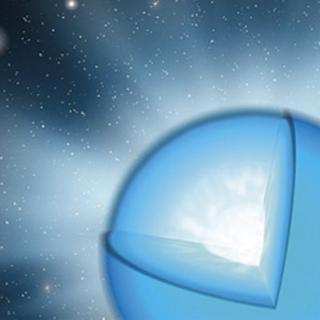Bibcode
López, R.; García-Lorenzo, B.; Sánchez, S. F.; Gomez-Velarde, G.; Estalella, R.; Riera, A.
Bibliographical reference
Monthly Notices of the Royal Astronomical Society, Volume 406, Issue 4, pp. 2193-2205.
Advertised on:
8
2010
Citations
5
Refereed citations
5
Description
HH 110 is a rather peculiar HerbigHaro object in Orion that originates
due to the deflection of another jet (HH 270) by a dense molecular
clump, instead of being directly ejected from a young stellar object.
Here we present new results on the kinematics and physical conditions of
HH 110 based on Integral Field Spectroscopy. The 3D spectral data cover
the whole outflow extent (~4.5 arcmin, ~=0.6 pc at a distance of 460 pc)
in the spectral range 6500-7000 Å. We built emission-line
intensity maps of Hα, [NII] and [SII] and of their radial velocity
channels. Furthermore, we analysed the spatial distribution of the
excitation and electron density from [NII]/Hα, [SII]/Hα and
[SII] 6716/6731 integrated line-ratio maps, as well as their behaviour
as a function of velocity, from line-ratio channel maps. Our results
fully reproduce the morphology and kinematics obtained from previous
imaging and long-slit data. In addition, the integral field spectroscopy
(IFS) data revealed, for the first time, the complex spatial
distribution of the physical conditions (excitation and density) in the
whole jet, and their behaviour as a function of the kinematics. The
results here derived give further support to the more recent model
simulations that involve deflection of a pulsed jet propagating in an
inhomogeneous ambient medium. The IFS data give richer information than
that provided by current model simulations or laboratory jet
experiments. Hence, they could provide valuable clues to constrain the
space parameters in future theoretical works.
Related projects

Physical properties and evolution of Massive Stars
This project aims at the searching, observation and analysis of massive stars in nearby galaxies to provide a solid empirical ground to understand their physical properties as a function of those key parameters that gobern their evolution (i.e. mass, spin, metallicity, mass loss, and binary interaction). Massive stars are central objects to
Sergio
Simón Díaz